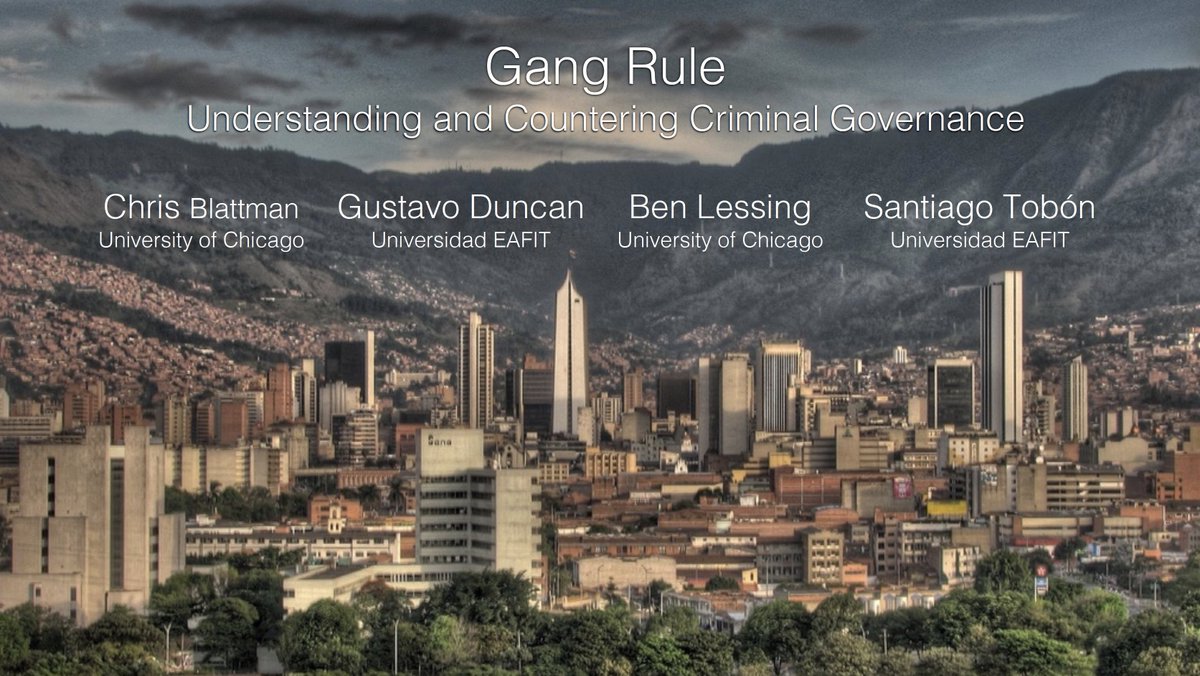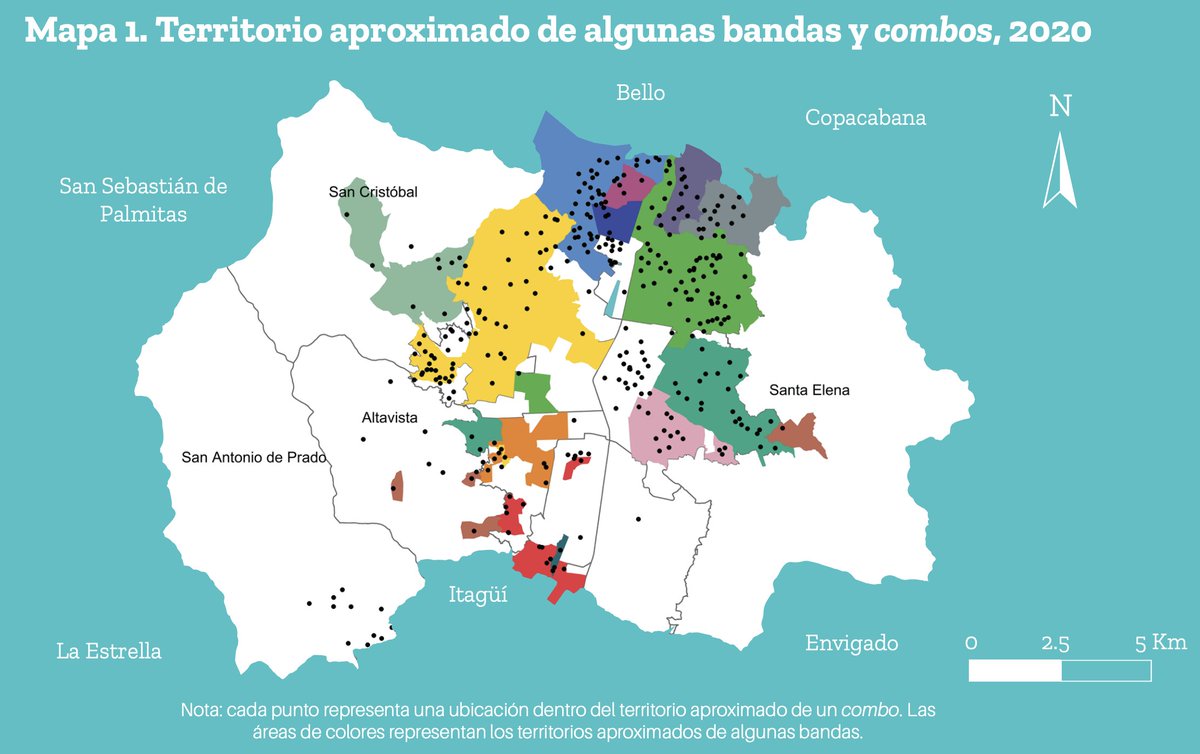
Three and a half years after defending my dissertation, I'm happy to see that all three papers are now online 🧵 

My job market paper: "Do better prisons reduce recidivism?" is forthcoming at @restatjournal:
mitpressjournals.org/doi/abs/10.116…
mitpressjournals.org/doi/abs/10.116…
I study the effects of prison quality on recidivism using data from Colombia.
To estimate causal effects, I leverage the quasi-random assignment of inmates to newer, less crowded, and higher service prisons.
I find that inmates assigned to newer facilities recidivate less
To estimate causal effects, I leverage the quasi-random assignment of inmates to newer, less crowded, and higher service prisons.
I find that inmates assigned to newer facilities recidivate less
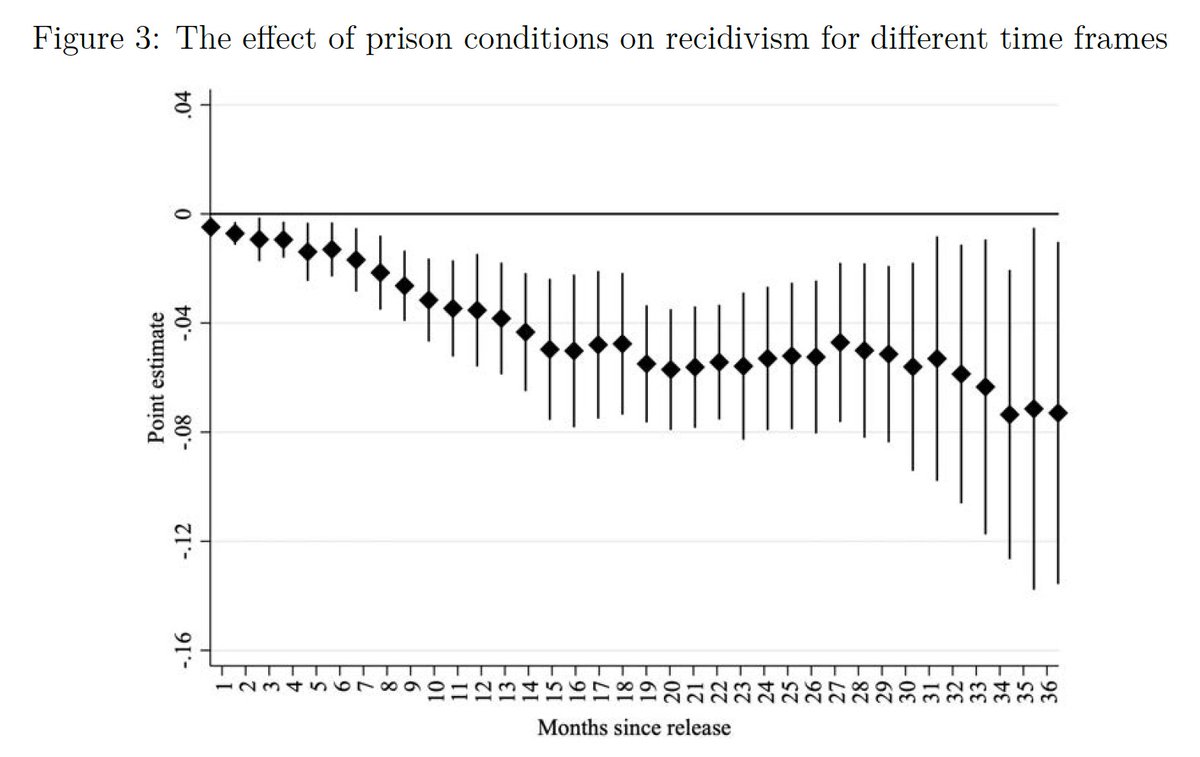
I also find suggestive evidence on three mechanisms:
1) Improvements in criminal capital
1) Depreciation of human capital for legal occupations
3) Possible retaliatory behaviors due to mistreatment
1) Improvements in criminal capital
1) Depreciation of human capital for legal occupations
3) Possible retaliatory behaviors due to mistreatment

The second chapter: "Place-based Interventions at Scale: The Direct and Spillover Effects of Policing and City Services on Crime," coauthored with @cblatts, Don Green and @dortegaeval, is forthcoming at @JEEA_News:
academic.oup.com/jeea/advance-a…
academic.oup.com/jeea/advance-a…
We worked with the city of Bogotá to experiment with doubled police patrols and intensified city services on crime hot-spots.
We find modest direct effects but with crime displaced nearby, especially property crimes
We find modest direct effects but with crime displaced nearby, especially property crimes
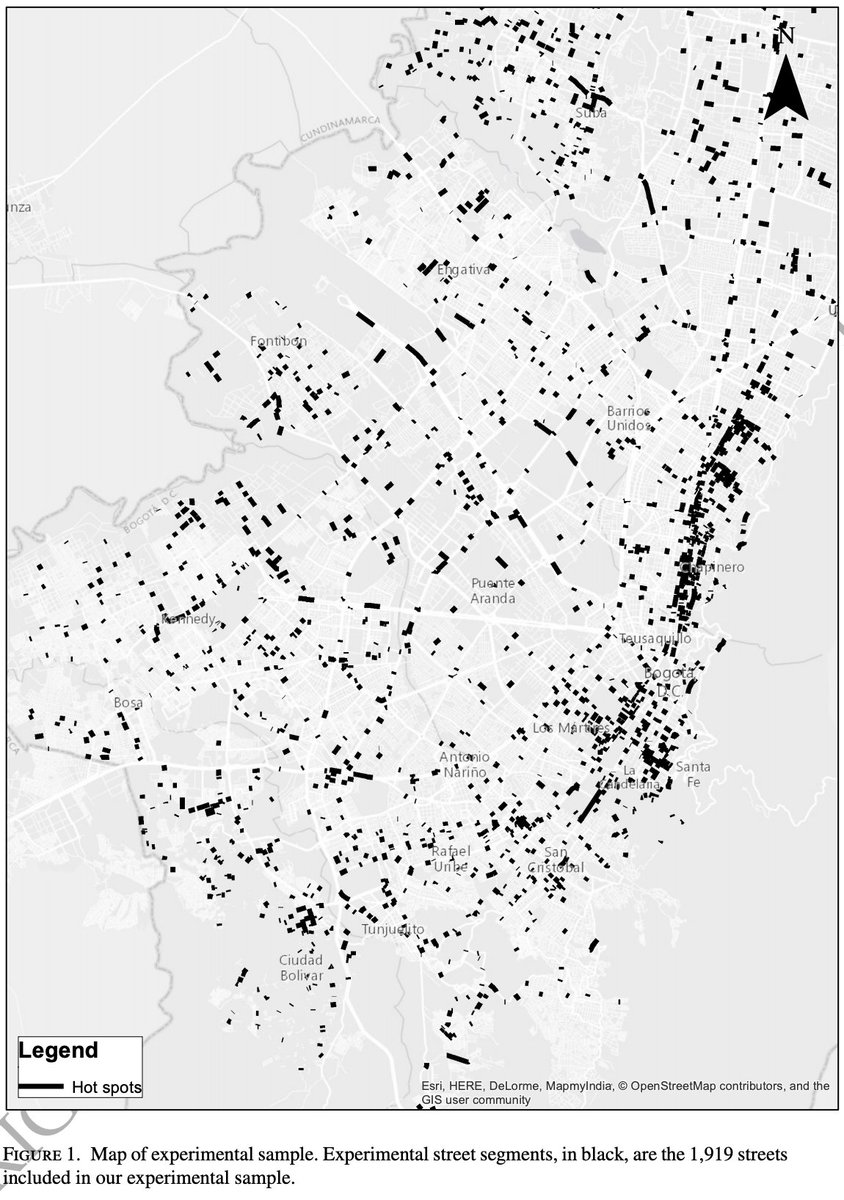
We also find suggestive evidence of a fall in homicides and sexual assaults as a result of the intervention.
The difference between aggregate effects on property and violent crime is statistically significant at conventional levels
The difference between aggregate effects on property and violent crime is statistically significant at conventional levels
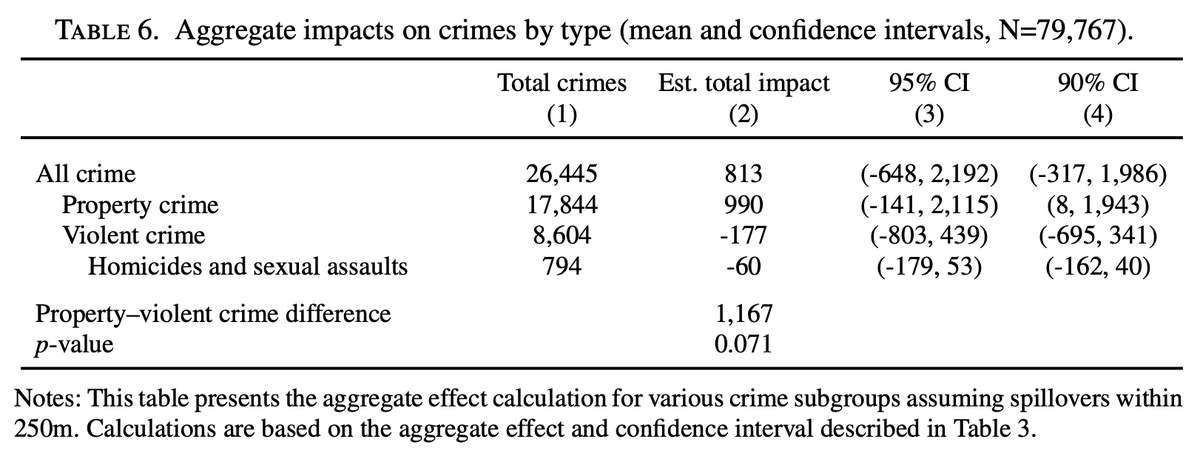
The third chapter (second year paper): "The deterrent effect of surveillance cameras on crime," coauthored with @DanielMejiaL and Santiago Gómez, is forthcoming at @JPAM_DC:
onlinelibrary.wiley.com/doi/abs/10.100…
onlinelibrary.wiley.com/doi/abs/10.100…
We study an installation program in Medellín and find that the quasi‐random allocation of cameras led to a decrease in crimes.
We test for spillovers and find no evidence of crime displacement or diffusion of benefits to surrounding locations
We test for spillovers and find no evidence of crime displacement or diffusion of benefits to surrounding locations

With no increase in the monitoring capacity and no chance to use camera footage in prosecution, these results suggest offenders were deterred rather than incapacitated 

A long list of people to thank, starting with my wife @IsaGutierrezR.
My advisors and coauthors: @DanielMejiaL @cblatts @Adcamach @fabiosanchez_to @juanf_vargas @meslava_twit @anamibanez @H_Zuleta Don Green @dortegaeval Santiago Gomez
My advisors and coauthors: @DanielMejiaL @cblatts @Adcamach @fabiosanchez_to @juanf_vargas @meslava_twit @anamibanez @H_Zuleta Don Green @dortegaeval Santiago Gomez
And many others that helped me along the way: @Abt_Thomas @aalvarezgallo @GCanavire @jccardenas1965 @MAranzazuRU @sebchaskel @kyle_holloway Sofía Jaramillo @gusduncan @jcmunozmora @BMagaloni @JimenaHurtado @van_bellegem @azambrano0 Yannick Thuy Mery Ferrando Guzmán Ourens
• • •
Missing some Tweet in this thread? You can try to
force a refresh





